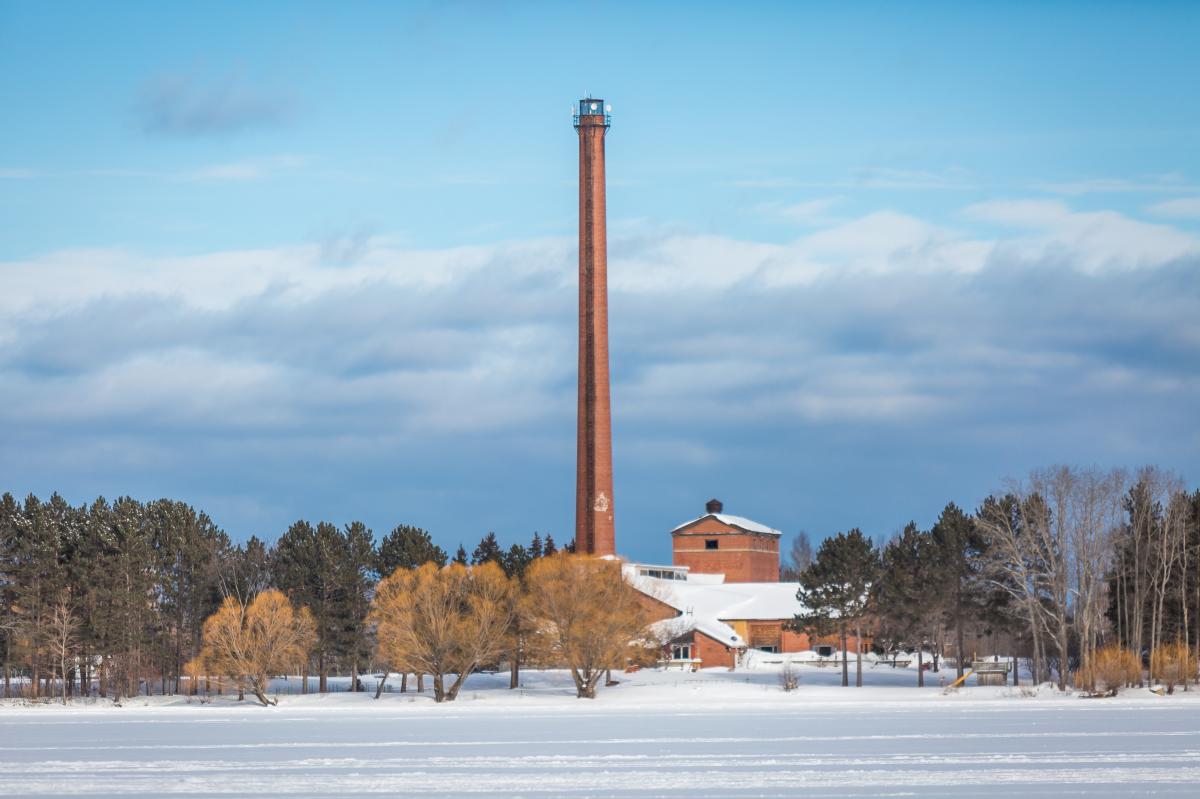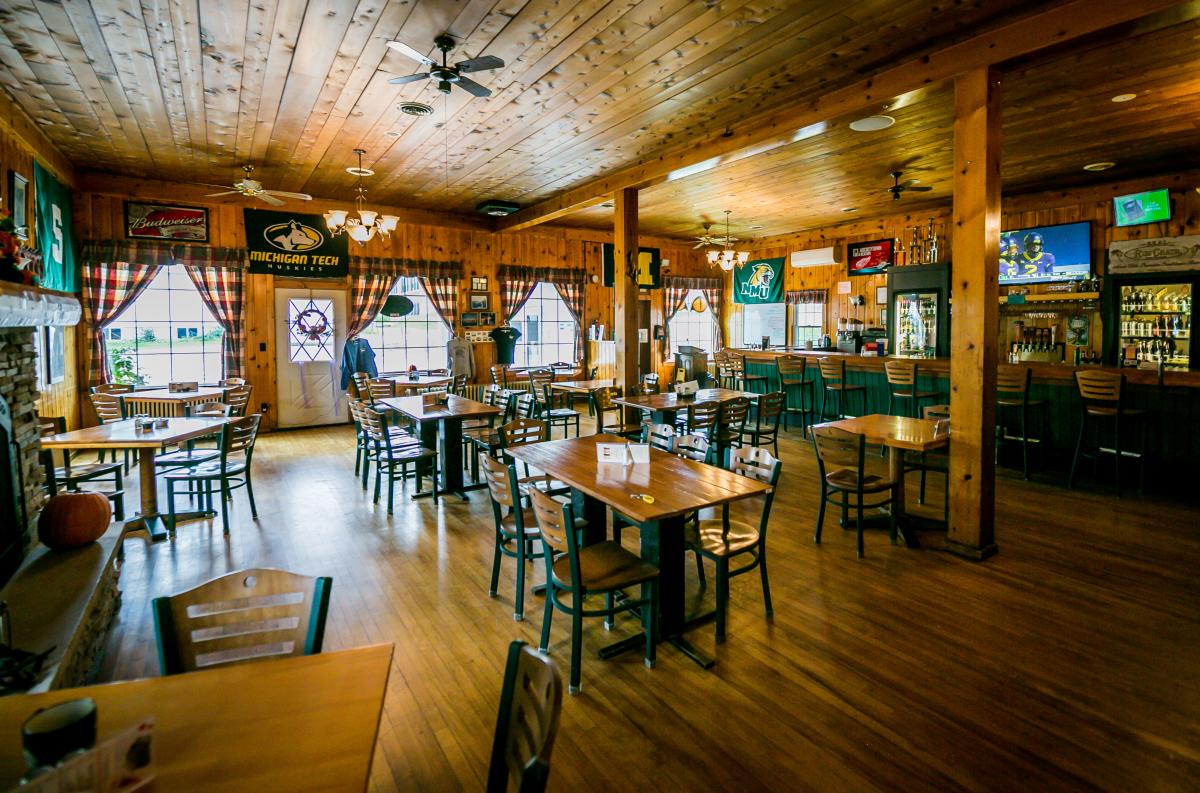When you visit Big Bay you will be taken aback by its natural setting with acres of forests lining expansive lakes. It’s hard to believe that this scenic slice of the Upper Peninsula was once an important outpost of the Ford Motor Company. In fact, Big Bay was much more than that. Henry Ford owned nearly the entire town of Big Bay and it was also a vacation retreat for Ford, his wife, and company executives.
Big Bay, like many communities in Michigan’s Upper Peninsula (UP), was greatly impacted by the growth of the Ford Motor Company in the early 20th century. In the 1920s and 30s, Henry Ford greatly expanded his company’s operations throughout the Upper Peninsula. The famed industrialist aimed to make the Ford Motor Company completely self-sufficient by owning all of the resources required to manufacture automobiles including lumber to make framework, floorboards and panels. Ford purchased over 313,000 acres of timberland and set up remote sawmills throughout the region.
However, Big Bay was unique from other UP towns, for it was not only shaped by the activities of Ford’s company, but it was also influenced by Henry Ford himself. Big Bay sparked Ford’s interest and imagination, and the businessman’s personal handiwork and revitalization of the town can still be seen and felt to this day.
Henry Ford in Big Bay
In the early 1940s, Ford came up with a plan to revitalize Big Bay. Ford and his wife, Clara, had visited the charming community several times while staying at the nearby exclusive Huron Mountain Club and saw its potential both as a place to do business and relax. So in 1943, Ford purchased the sawmill, which still sits on Lake Independence today, and practically every building in Big Bay. By purchasing all of this property, Ford successfully transformed Big Bay into a Ford Motor Company town.

The Sawmill once owned by the Brunswick-Balke-Collender Company was famous for manufacturing most of the country’s bowling pins. Ford refurbished and reopened the factory as a manufacturer of wood panels for Ford automobiles in 1943. These panels were on the popular Woody Wagons. Ford also bought 62 houses and the general store, which he remodeled and converted into the Big Bay Hotel.
 Thunder Bay Inn
Thunder Bay Inn
The Big Bay Hotel, which was later renamed the Thunder Bay Inn, was constructed in a beautiful colonial style, marked by handsome columns, two-story balconies, and a white clapboard facade. When Ford acquired the hotel, he spared no expense in transforming the hotel into a special vacation retreat.
He had the neighboring rail depot moved down the hill so that he could have an unimpeded view of Lake Independence from his second-floor balcony, and he even went so far as to have several houses, the Catholic church, and a nearby road relocated so that he could see his sawmill across the street. According to town lore, Ford made a habit of sitting on the hotel’s porch and watching the workers at his sawmill, all the while handing out dimes and nickels to local children to purchase something from the general store.
The hotel became one of the primary meeting places for Ford and his executives, who used an upstairs room to meet with the company’s mill managers. More than that, however, the hotel was a favorite vacation spot for Henry and Clara, who were known to invite friends up for the weekend. When visiting, Ford reportedly always stayed in room 201, which still bears his name today.
Ford’s Lasting Legacy in Big Bay
Although Ford’s assets, including the hotel, were sold shortly after his death in 1947, Ford’s legacy in Big Bay remains. Visitors can stay in the automaker’s suite at the Thunder Bay Inn, sit on the front porch that once overlooked Ford’s sawmill, and enjoy the small-town charm that once enticed the famous entrepreneur.

